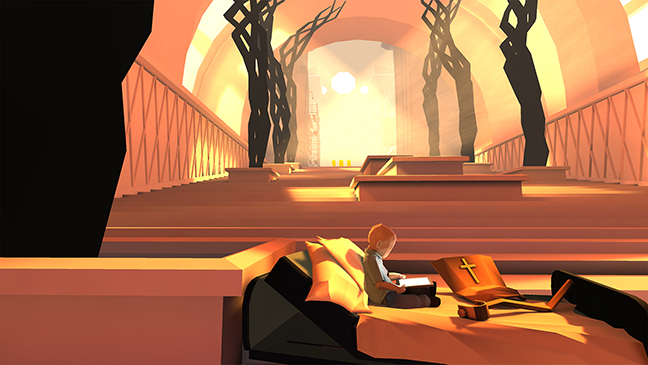Bringing video-games to an arts festival is a similar challenge to engaging children in poetry. Largely untapped by young people, poetry can offer a rich seam of beautiful and unimagined ways of making sense of the world. But, in spite of the best efforts of teachers, poetry warriors and literary proponents, many still grow up thinking that poetry is simply not for them.
Of course, these same children are well-versed in the benefits of video-games. But their parents are similarly in danger of designating themselves as non-gamers, assuming these things are not for them.
Greenbelt has supported the idea of video-games as more than just entertainment for a number of years. But this year at Silent Stars it is talking a lead in exhibiting, discussing and interacting with video-games as meaningful experiences that have the potential to offer as much as a book, film or poem.
This is exciting for a number of reasons. It’s great to see Greenbelt talking a lead in this cutting edge art form. It’s a privilege for video-games to get proper programming space in a mature arts context. And, of course, it will be exciting to see what we learn together through the various sessions.
What this actually means is an interACT programme stream that offers talks, opportunities to play through unusual video-games together, dusk gaming sessions on The Lawn and a documentary about a family who made a video-game about their son’s terminal cancer. All the sessions will have the same people running them and offer opportunities to ask questions, poke, prod and find out more about what video-games may have to offer your spiritual life.
If gaming still conjures images of darkened rooms full of teenagers, think again. While there are some games for younger people, there are also plenty just for adults. Far from closeted away in the dark, we’ll be running around outside, shouting, contemplating the stages of life and joining a small boy with cancer. This is gaming. But not as you know it.
Equally, we will be honest about video-games’ problematic propensity to violence, commercialisation and complexity. Not to scapegoat particular games but in hope of discovering that all this doesn’t eclipse meaningful stories, surprising non-trivial interactions and spiritual encounters.
Whether you think games simply aren’t for you, are bewildered by buttons or worry about detrimental effects of screen-time (or even play them avidly every day) this is a unique opportunity to discover their potential.
Further Reading/Watching
A note from InterACT programme curator Andy Robertson
To get you ready for the session, there are a handful of videos you can watch. These give a taste of the territory I’ll be covering and will likely raise as many questions as they answer, so have a watch and bring your thoughts with you to the interACT sessions. I’m also happy to talk beforehand and afterwards on Twitter, @GeekDadGamer.
Here’s a discussion about whether games are culture or entertainment with Iain Simons, Firector of the National Video Game Arcade in Nottingham.
Thank you for Playing is a documentary about a video-game called The Dragon, Cancer (a still from the game is pictured at the top of the blog). We will be playing the game over the weekend and watching the film exclusively at Greenbelt. Here’s a trailer:
Joust is a game we’ve played at Greenbelt the last few years. It’s a PlayStation game that is played outside without a screen. The game’s creator discusses it’s unusual qualities here:
Spaceteam is an unusual game that challenges players to communicate while a space craft falls apart around their ears. Here’s a look at the themes it raises using the Tower of Babel narrative as reference point:
Here’s my TEDx talk (quite old now!) that discusses how games can be meaningful and asks for a new priesthood of gamers to help make sense of these experiences for a wider audience.
And my Greenbelt GTV talk, where I playfully compare the “religion” of the gamer and the Christian is here:


